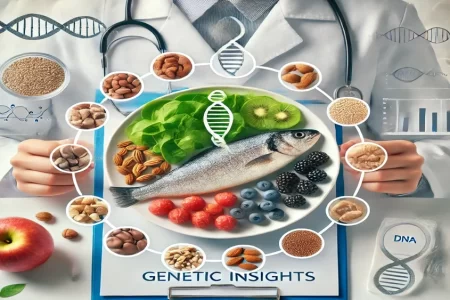Diabetic Nephropathy Diet
- Updated on: Jun 10, 2024
- 6 min Read
- Published on Dec 11, 2019

The number of people suffering with kidney diseases has increased significantly over the past 15 years. Diabetes is one of the reasons for kidney diseases leading ultimately to kidney failure. Almost 40% of all cases of kidney diseases are associated with diabetes. It is common in people who ignore a healthy diet and fail to measure their glycaemic index.
Diabetic nephropathy is one of the most common complications of diabetes. Management of diabetes can help in preventing diabetic nephropathy (DN) and avoid other complications. Your diet plays an important role in the overall management of diabetes and prevention of associated complications such as diabetic nephropathy by maintaining sugar levels in your body.
A keto diet is often recommended by doctors and nutritionists for diabetic patients. It includes high fat and low carbohydrates which pushes your body into a biological state called ketosis. In this process, the body utilizes excess fat for fuel instead of sugar. This helps diabetics in losing weight (important for disease management) as well as maintaining the sugar levels of the body. At the same time, it is important to note that diet restriction could deteriorate quality of life of patients with diabetic nephropathy.
Diabetes and Kidney Diseases
Diabetic nephropathy (DN) is one of the common complications of diabetes. It is often characterized by conditions like proteinuria, impaired renal function etc. Albuminuria caused due to diabetic nephropathy increases the risk of cardiovascular mortality by 20- to 40-fold. Therefore, it is important to monitor and prevent the progression of diabetic nephropathy to end-stage renal diseases (ESRD). Some of the ways recommended for this purpose include such as:
- Control blood glucose levels
- Control hypertension
- Restrict foods containing excess salt, phosphorous and potassium
- Consume a low protein diet
- Consume a proper diabetic diet to prevent diabetic nephropathy
Dietary Tips for Diabetics with Diabetic Nephropathy
Hyperglycemia has an important role to play in the development of diabetic nephropathy. Poor glycemic index, positive family history, and a poor glycemic control significantly increase the risk for development of diabetic nephropathy. Therefore, it is important for patients with diabetic nephropathy to ensure a good control of their glycemic index.
There are certain dietary tips for diabetics to maintain their glycemic index. Some of these are:
- Diabetics should eat their meals at fixed times because blood sugar levels are higher at one to two hours after having a meal
- Eat several small meals in a day and consume snacks in between the meals
- Consume well-balanced meals with right amounts of starches, fruits, vegetables, proteins, and fats
- Diabetics should keep carbohydrate quantity constant at each meal to maintain their blood sugar levels. This can be achieved by using measuring cups or scales to ensure a proportion size.
- Taking appropriate amounts of food should be encouraged to maintain good glucose levels. Consuming less food can decrease the blood glucose levels in (hypoglycemia). Having excess food at a time can increase the blood sugar levels (hyperglycemia).
Diet has an essential role in the management of diabetes and associated kidney diseases like diabetic nephropathy. A dietician can offer you the right diet plan if you are diagnosed with diabetic nephropathy or any other diabetes-related disease. The diet plan can help you in managing your blood glucose levels as well as decreasing the amount of waste and fluids processed by your kidneys.
Recommendations for Mineral Intake in Diabetic Nephropathy
Animal studies on dietary proteins have suggested that patients fed with a low casein diet or soy protein have reduced excretion of urinary albumin which suggests a delay in the progression of diabetic nephropathy. Several small studies in diabetic nephropathy patients have revealed that a prescribed protein-restricted diet of 0.6 g/ kg day (subjects only achieved a restriction of 0.8 g/kg/day) reduces the rate of fall of glomerular filtration rate (GFR) modestly.
Diabetics are often recommended for low carbohydrate and low protein diet because there are various factors crucial for the formation of AGEs (advanced glycation end-products). Some of them include:
- Turnover of protein for glycation
- Degree of hyperglycemia and extent of oxidative stress
AGEs are compounds formed in the body when fats and proteins combine with blood sugar. Accumulation of AGEs in the body increases the risk of many degenerative diseases like atherosclerosis, chronic kidney disease, and Alzheimer’s disease.
Proteins and phosphorous share a linear relationship. Excess levels of phosphorous are unsuitable for patients with kidney diseases. Phosphorous intake should not exceed 800-1000 mg/day to control hyperphosphatemia in kidney disease patients especially predialysis and dialysis patients.
Patients with diabetic nephropathy should avoid foods with high protein to phosphorous ration. Some foods with phosphorous as an additive have a very high content of phosphorous and therefore should be strictly avoided. Such foods mainly include:
- milk, milk products,
- processed foods
- beverages
- frozen meat, etc.
- vegetarian proteins can be consumed instead of such foods because only 50-60% of phosphorus from vegetable source is absorbed.
- calcium intake should be limited to <2000 mg/d including supplementation.
Can a Low Protein Diet Aid in Diabetic Nephropathy?
A low-protein diet (LPD) is believed to be useful in decreasing the progression of kidney diseases. It has been reported that low protein diet can improve the metabolism of proteins, sugars, and lipids. Besides, it can reduce the symptoms and complications of renal insufficiency. However, it is still unclear whether a low protein diet can help in diabetic nephropathy (DN) or not.
It has been proposed for many years that a low-protein diet (LPD) can delay the progression of diabetic nephropathy. However, the effectiveness of a low protein diet concerning renal outcome is still disputed.
Various researches assessed the diet compliance in low-protein diet group and control group based on actual protein intake ratio (APIR) and found that a low protein diet was extensively associated with improvement in diabetic nephropathy patients.
Relationship Between Diabetes, Diet and Kidney Disease
According to data presented by “The Centers for Disease Control and Prevention”’ it has been found that more than 35% of diabetic people aged 20 or older have chronic kidney diseases (CKDs). One of the most important risk factor for Diabetes (type 2), which can lead to CKD, is being overweight. It is very difficult to manage diabetes and CKDs alone, however, it is more stressful if one has to deal with both diseases together. Both these conditions are common in Americans and according to the “End-Stage Renal Disease Incident and Prevalent Quarterly Update”, approximately 37% of patients with end-stage renal diseases (ESRD) have diabetes.
Diet plays an essential role in both these conditions and becomes even more important for patients suffering with both the conditions at the same time. Such patients need to pay more attention on their carbohydrate (sugar) intake. Sodium is important for both CKD and diabetic patients. Consuming a low sodium diet helps such patients in lowering their blood pressure and reducing fluid retention. Excess proteins can also be harmful to patients with diabetes and diabetic nephropathy.
Diabetic patients on peritoneal dialysis need to be extra careful in maintaining their sugar levels because dialysate solutions used to clean their bodies are normally sugar-based solutions. Your care team should be aware of your status as a diabetes patient and should be extra careful while performing your dialysis.
Ketogenic Diet may Reverse Diabetic Nephropathy- A Research Suggests
According to researchers from the “Mount Sinai School of Medicine”, a specialized diet known as the ketogenic diet may have the potential to reverse diabetic nephropathy. Ketogenic diet is a kind of diet that is high in fats and low carbohydrates.
In a press release, Charles Mobbs, Ph.D., Professor of Neuroscience and Geriatrics and Palliative Care Medicine at Mount Sinai School of Medicine, said “Our study is the first to show that a dietary intervention alone is enough to reverse this serious complication of diabetes,” He further added that “This finding has significant implications for the tens of thousands of Americans diagnosed with diabetic kidney failure, and possibly other complications, each year.”
The researchers at Mount Sinai School of Medicine evaluated mice who were genetically predisposed to type 1 or type 2 diabetes. Among such mice, half were put on the ketogenic diet and half were put on a high carbohydrate diet (control group). After 8 weeks, it was found that molecular and functional indicators of kidney damage were reversed in the mice on the ketogenic diet. Also, the kidney pathology of the model of type 2 diabetes was partially reversed on microscopic analysis.
In the press release, Mobbs further added, “Knowing how the ketogenic diet reverses diabetic nephropathy will help us to identify a drug target and subsequent pharmacological interventions that mimic the effect of the diet, and we will look forward to study this promising development further.
Read more about Kidney Disease
Diet Plan for Patients With Diabetic Nephropathy
People diagnosed with diabetic nephropathy need to work with a dietitian to create an eating plan that will be right for them. The diet plan will give nutritional guidelines which will suggest the amount of protein, fat, and carbohydrate one can eat, as well as the number of minerals like potassium, phosphorus and sodium one can consume each day.
Below is provided a list of foods that are usually recommended for patients on a typical renal diabetic diet.
| Type of Food | Recommended | Avoid |
| Carbohydrate Foods |
|
|
| Higher-Protein Foods | Lean cuts of meat, poultry, fish and seafood; eggs, cottage cheese (limited due to high sodium content) | Bacon, canned and luncheon meats, cheeses, hot dogs, organ meats |
| Higher-fat foods | Soft or tub margarine low in trans fats, mayonnaise, sour cream, cream cheese | Bacon fat, back fat, butter, Crisco®, lard, shortening, margarines high in trans fats, whipping cream |
| Beverages | Water, diet clear sodas, homemade tea or lemonade sweetened with an artificial sweetener | Regular or diet dark colas, beer, fruit juices, fruit-flavored drinks or water sweetened with fruit juices |












